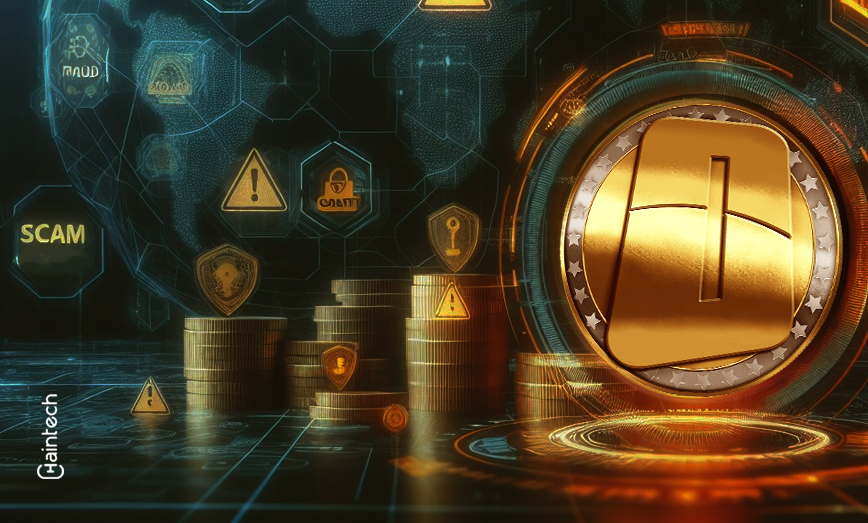Sparkles of Trust: How Blockchain Empowers the Shimmering World of Diamonds with Unbreakable Security

The diamond industry has always sparkled with allure, captivating the hearts of people worldwide with its shimmering beauty and unparalleled value. However, in recent years, there has been a growing demand for transparency and authenticity within this glittering realm. Consumers and industry stakeholders alike are seeking to ensure that every diamond they encounter is genuine, ethically sourced, and has a documented journey from mine to market. To address these concerns, blockchain technology emerges as a promising solution, offering an unbreakable security system that can bring about a transformation in the diamond industry.
Understanding the Diamond Industry
Before we delve into the potential of blockchain technology, it is important to understand the complex journey that a diamond embarks upon from its birth in a remote mine to its final destination in the hands of a consumer. This journey is fraught with challenges, especially when it comes to trust, traceability, and certification.
Certification is crucial in the diamond industry, as it acts as a guarantee of a diamond’s authenticity, quality, and characteristics. However, counterfeit diamonds have become a significant problem, infiltrating the market and eroding trust. These imposters not only undermine the credibility of the diamond industry but also jeopardize the value and allure of genuine diamonds.
Unveiling Blockchain Technology
Blockchain technology, often associated with cryptocurrencies, holds immense potential beyond the financial realm. At its core, blockchain is a decentralized ledger that records transactions in a transparent and immutable manner. This unique structure allows for the creation of unbreakable trust in various industries, including diamonds.
Blockchain works by creating a network of computers or nodes that collectively validate and record transactions. Each transaction, or “block,” is linked to the previous block, forming an unalterable chain of information. This decentralized nature eliminates the need for intermediaries, which enhances efficiency and reduces costs.
In the context of the diamond industry, blockchain can revolutionize the way diamonds are tracked and verified. By leveraging blockchain technology, the industry can establish an unbreakable chain of custody, tracing a diamond’s journey from mine to market and ensuring its authenticity and provenance.
Transforming the Diamond Industry with Blockchain
Counterfeit diamonds pose significant challenges to the diamond industry, eroding trust and compromising its integrity. However, blockchain technology offers a solution by providing a secure and immutable record of a diamond’s history. By incorporating blockchain into the industry, every diamond can be uniquely identified and its authenticity can be verified through its entire supply chain.
Implementing smart contracts, a feature of blockchain technology, can further streamline transactions within the diamond industry. These self-executing contracts automatically execute agreed-upon conditions, ensuring secure and efficient transactions.
Additionally, the integration of blockchain technology improves supply chain transparency, allowing stakeholders to track a diamond’s journey with confidence. This increased transparency reduces the likelihood of fraud by providing real-time information about a diamond’s movement, thereby safeguarding against theft and counterfeiting.
The Diamond Blockchain Ecosystem
The diamond blockchain ecosystem comprises various stakeholders, including diamond miners, manufacturers, retailers, and consumers. Each player has a crucial role to play in the adoption and integration of blockchain technology.
Currently, the diamond industry is in the early stages of embracing this transformative technology. However, there is immense potential for blockchain to revolutionize the industry, ensuring transparency, and empowering consumers with trust.
To fully harness the power of blockchain, collaborative efforts are underway to standardize and regulate its use in the diamond industry. By establishing industry-wide standards and regulations, stakeholders can collectively embrace this technology and leverage its benefits to the fullest extent.
Protection against Conflict Diamonds
One of the most pressing issues the diamond industry faces is the trade of conflict diamonds, which fuels civil wars and human rights abuses. Blockchain technology can play a crucial role in combating this challenge by ensuring transparency and traceability.
By tracing the origin of diamonds on the blockchain, industry stakeholders can promote ethical sourcing and eliminate the loopholes that allow conflict diamonds to enter the market. This technology provides a mechanism for verifying that diamonds have been sourced responsibly, empowering consumers to make ethical choices with confidence.
Additionally, blockchain can foster responsible mining practices by providing a transparent record of the entire supply chain. By holding mining companies accountable, blockchain technology encourages sustainable and ethical practices within the diamond industry.
Unbreakable Security: Advantages of Blockchain for Diamonds
One of the greatest advantages of blockchain technology is its immutability and tamper-proof nature. Once a diamond’s information is recorded on the blockchain, it cannot be altered or manipulated. This ensures the integrity of diamond records, providing a reliable source of information for consumers and industry stakeholders.
Blockchain also provides secure ownership verification, addressing the issue of stolen or fraudulent diamonds. By recording ownership details on the blockchain, the transfer of diamond ownership becomes transparent and verifiable, making it difficult for thieves or fraudsters to profit from illegal diamond trade.
Ultimately, the integration of blockchain technology fortifies the security of the diamond industry as a whole, protecting against theft, fraud, and the influx of illegal diamonds into the market.
Challenges and Limitations
While blockchain technology holds significant promise for the diamond industry, it is not without its challenges and limitations. Scalability remains a key concern, as the diamond industry handles a vast volume of transactions. Efforts are underway to develop and optimize blockchain solutions that can handle the scale and complexity of the industry’s needs.
Integrating blockchain into the diamond industry also requires collaboration among stakeholders, including miners, manufacturers, retailers, and certification bodies. Industry-wide cooperation is essential to ensure a seamless transition and widespread adoption of this transformative technology.
Moreover, resistance and skepticism towards blockchain adoption exist, as with any emerging technology. Education and awareness campaigns are necessary to address misconceptions and demonstrate the potential benefits of blockchain. With time and evidence of successful implementations, resistance can be overcome, propelling the diamond industry into a new era of trust, transparency, and brilliance.
Case Studies: Blockchain in Action
Several real-world examples showcase the power of blockchain in the diamond industry. For instance, Everledger, a blockchain-based company, has created a platform that enables diamond certification, tracking, and verification. This platform has successfully enhanced transparency and trust within the industry, providing consumers with a reliable source of information.
Other players, such as De Beers, have also embraced blockchain technology to track diamonds from the mine to the retail store. These case studies demonstrate the tangible benefits of blockchain solutions, including enhanced traceability, reduced fraud, and increased consumer confidence.
Future Trends and Innovations
As technology continues to advance, emerging trends such as artificial intelligence (AI) and the Internet of Things (IoT) hold great potential in combination with blockchain for the diamond industry. These technologies can further enhance traceability, automate processes, and provide real-time insights into the diamond supply chain.
Furthermore, the development of diamond-specific blockchain platforms is already on the horizon. These platforms aim to address the unique needs of the diamond industry, providing tailor-made solutions that optimize efficiency, security, and transparency.
Looking into the future, we can envision a diamond industry empowered by blockchain, where trust, transparency, and the ethical sourcing of diamonds are the norm. The marriage of blockchain technology with diamonds has the potential to reshape the industry, ensuring its shine remains untarnished for generations to come.
Conclusion
The integration of blockchain technology within the diamond industry holds the key to ensuring authenticity and unbreakable security. By leveraging blockchain’s decentralized and immutable nature, the industry can overcome the challenges of trust, traceability, and certification. Blockchain empowers stakeholders to automate transactions securely, enhance supply chain transparency, and protect against counterfeit diamonds, theft, and fraud.
The diamond blockchain ecosystem is gradually evolving, with industry players embracing this transformative technology. Efforts are underway to standardize and regulate blockchain in the diamond industry, fostering collaboration and widespread adoption. Through blockchain, the trade of conflict diamonds can be curbed, while ethical sourcing and responsible mining practices are promoted.
The advantages of blockchain for diamonds are undeniable, offering immutability, secure ownership verification, and protection against theft and fraud. However, challenges and limitations, such as scalability and resistance to adoption, must be addressed through industry-wide collaboration and education.
Real-world case studies provide evidence of blockchain’s impact on the diamond industry, showcasing the benefits of enhanced transparency, traceability, and consumer trust. Looking ahead, emerging technologies like AI and IoT hold the potential to further revolutionize the diamond blockchain landscape.
In conclusion, blockchain technology is poised to empower the diamond industry with trust, transparency, and brilliance. By embracing this technology, the industry can secure its future, ensuring that every diamond sparkles with authenticity and unbreakable security.









